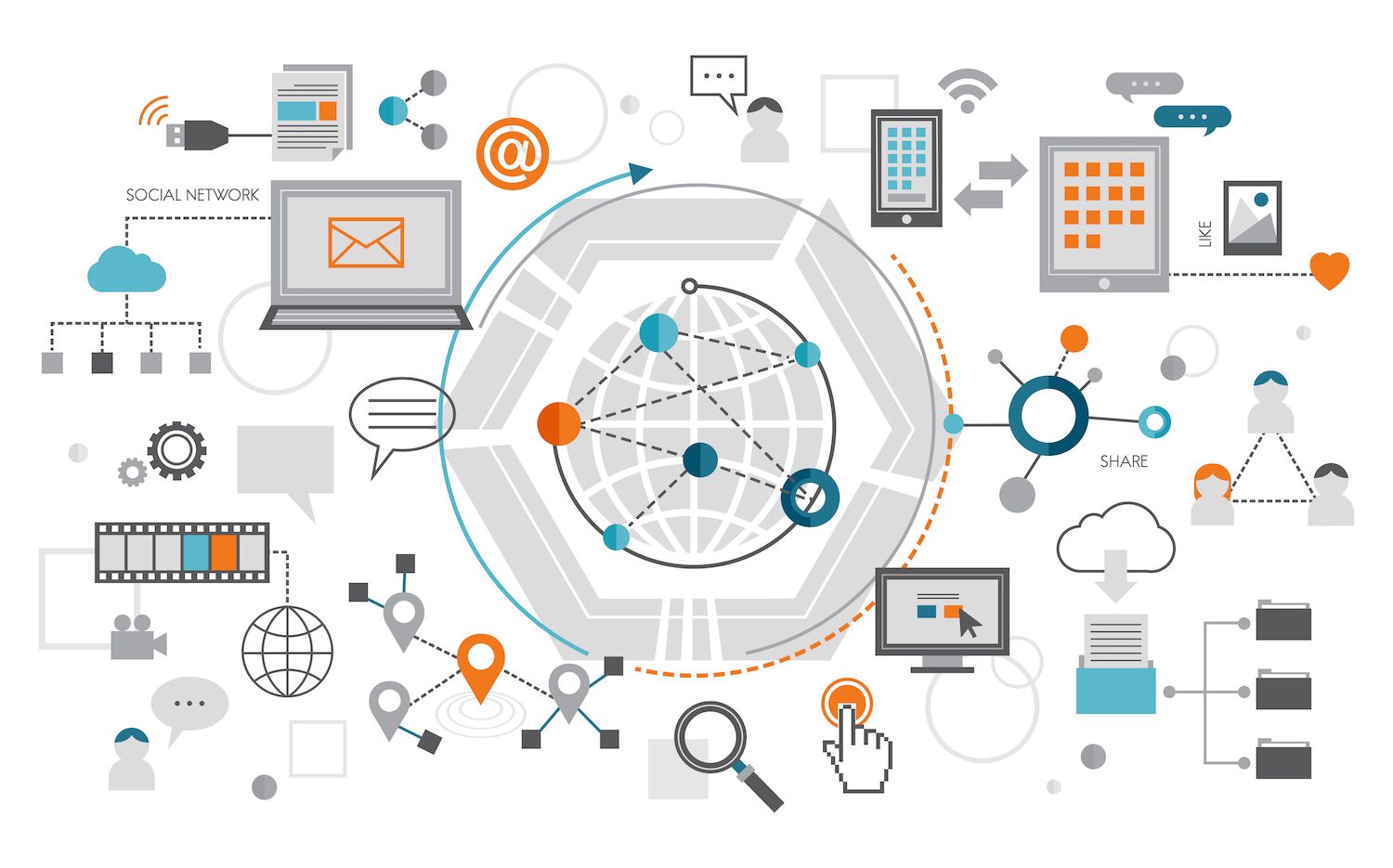Twitter is vs. Mastodon: Which Platform to Choose (plus a more suitable alternative) |
Twitter was launched in the year 2006, and during the decades that followed the little bird tweets its way into the mind and hearts of over 400 million people. Twitter is comprised of text-based, short posts that were compiled in "tweets." People who have been long-time users of the platform will remember the kerfuffle when tweets expanded beyond the 140 characters limit to 280 characters and the short protest that followed.
With Elon Musk's +$40 billion Twitter acquisition in October 2022, plenty of people are leaving Twitter. Some object to Musk himself, regardless of his views on politics or leadership style. There are some who do not agree with his plans of the company's platform.
Another of Twitter alternatives that has been making the rounds recently is Mastadon. It was launched in 2016 to be an open-source and free-of-cost social network, Mastodon touts (or we should be saying "toots") its services as a better choice for those who are long-term Twitter users. With stars like Kathy Griffin and Stephen Fry switching to Mastodon it's possible you're thinking that it's the right time for you to try this too.
In this article, we'll talk about Twitter vs. Mastodon. We'll show how the wooly mammoth compares to the tiny blue bird. Then, we'll about a more suitable alternative.
If you want more support for building your online community, come join OUR Mighty Community for free and get to know other newly well-established community owners! We'd love to meet you. Register for free!
The piece...
An alternative to both Twitter and Mastodon
Actual ownership = monetization
What exactly is Mastodon
Mastodon is a social network that's hosted on what users refer to the "fediverse" which basically signifies that the network runs on separate servers which can communicate with each other. It has a sort of a local-to-social network feel. The site was founded in 2016 by Eugen Rochko, Mastodon is a little as if it's a network of independent social networks who have the same the same language.
However, if the personal server portion of Mastadon is a source of anxiety I'll say this. When you've gotten over the host server (ie. which is where your personal information is) The user experience is ridiculously similar to Twitter perhaps with a bit of Discord thrown in. Instead of "tweet" it's a "toot." In place than "liking," you "favorite" the item you like. People who have been using Twitter may recognize Mastodon as a sort of brand that is similar to Twitter however it has 500 characters.

Mastodon lets you create an account, where you are able to add a profile photo and a hyperlink to your website, and other options that users can include on their Twitter bios. As with Twitter, you get the number of followers and the people that you follow. You can reply, boost (AKA "retweet"), or star (favorite) some thing, or bookmark toots.

Pros and cons of Mastadon
Pros
- Mastadon is similar to Twitter. Its user interface should be pretty familiar and allow you to set up the account running quickly. Posting, uploading photos and videos, as well as polls, feel similar to Twitter.
- It's also got functionalities that are interactive. You can direct message people, follow them and block them. You can also mention them with an @.
- This decentralised look provides more possibilities over Twitter to build something similar to a space, a dedicated server that allows users who are interested in one particular topic are able to meet.
- There aren't advertisements on Mastodon. People have created servers through a cash payment or through crowdfunding. This has some issues to it, and we'll discuss in the next section However, it's great to think about it in the long run.
- The code that runs Mastodon is free to use. This can be a positive thing since people can take it on and use it to customize their own conversations. Alongside the Mastodon official applications, users are using Mastodon's open-source code to create applications for social networking.
- There is no limit to the number of people on your own server. You can follow people all over the world, no matter what server they happen to live on. You can also mark servers that are open for join or invite potential members to request to join.
Cons
- There's no algorithm. Users see posts in the order they're posted. This sounds great at first but it actually hinders the usability of the platform.
- Someone has to pay. It's great to not have advertisements on Mastodon However, there might be an issue. Building your following with a server implies that someone has to pay for it, either you pay yourself or operate using a server that someone is paying for. This is great if you can keep the money for a long time, however when someone thinks it's not worthwhile to spend their money for the server, it's likely to disappear.
- Mastodon can be difficult to setup for those who want to create the channel of your choice. It's important to know how you can manage the hosting yourself and set up security protocols. If you're not a programmer, you would probably need to hire one.
- There are plenty of security problems regarding the way that this platform is structured. Requiring people to "apply" to a server could help but so too could the "block" options. There's not any actual moderation and you can see almost any person, anywhere, regardless of which server they're using. And since it's grassroots, there's nobody to try to alter the culture if it's eventually hijacked by bots and Trolls.
- There's not a way to earn money on Mastodon. And not only that, it's cost-free. Anyone hosting the site has to pay for it and there aren't ads. In the moment it is currently being funded by donations, which raises grave questions about the viability of these networks.
- is an open-source and decentralized community engine. Open source is good because it allows users to edit and repair issues, but it can also be a liability - it's created problematic networks, like Gab.
An alternative to both Twitter and Mastodon
As a Twitter alternative, it can do similar features. But it's harder to utilize, requires self-hosting in order to set up a server and , frankly speaking, doesn't have a lot of the good functions Twitter provides. It's easy to ignore the algorithm. However, in a social media platform like Facebook, the algorithm helps you see content that you want to view. If your feed is a never-ending and unorganized brain dump, it makes it difficult to talk to people and build a communities. We could think of Mastodon as a kind of forum but it's just not as effective in the same way as reddit, which allows up-voting as well as down-voting to make sure people have access to relevant content.
Let's discuss another option. Mighty is a platform that is cultural designed to help build lively communities. But where Twitter is a massive social media platform and Mastodon is a vast server collection, Mighty lets you build a dedicated community full of users who share the same visions and aspirations.
Here are some motives to create the Mighty Network instead.
Start Your Free Trial No credit card is required.
Usability in the real world
While Mastodon requires coding and hosting to be able to setup your own server, it gives you an impressive community out of the box. Anyone is able to easily build an, expand, and make money from a community that blows Twitter and Mastodon out of the water.
Real content has features
280 characters? 500? Who cares? A Mighty Network gives you actual feature-rich content. Create posts if you want you, or write long-length articles (blog posts). You can create polls and discussions, organize discussions, live stream, add events, and build classes. Mighty is a social network designed to make community work as well as bring a bunch of people who are strangers and to help to make them lifelong friends.

Spaces are not servers
Contrary to Mastodon which is a platform where people live in servers, but are able to connect over the entire platform, a Mighty Network is an enclosed community. Instead of joining various servers, discussion and activities can be organized by spaces instead. Every space offers the opportunity to offer access, host events, add content, all-member chat or even live streaming or courses.
Actual ownership = monetization
If you've put in the effort to create a community and you want to generate revenue from it, then there's nothing wrong with doing that. Therefore, instead of worrying the presence of ads on your platform or not - like Mastodon has - why not simply build on the platform that can help you turn community into a thriving company?

The platform is built with payment integration, making it possible to charge your members with a monthly or one-time cost for the privilege (or make it free in the event you want to keep it free). There are hosts who make money from free communities by offering paid live events, which charge for access to premium spaces, or selling a course. The sky's the limit however, you cannot perform any of these on or through Twitter and Mastodon.
More secure
The Mighty Network gives you way more choices for security and moderating. It is as flexible similar to Mastodon for getting users to ask for access or even apply to join. It is possible to moderate content and recruit other hosts to be moderators. Since users are part of an individual community rather than the whole network, you'll feel secure in the privacy of your own Network.
Applications and access
comes with a great app that works on all types of devices. With Mighty Pro You can also get a custom-built, brand-named app which gives users the Mighty Network completely with your own branding. We do the building and offer ongoing support. Schedule a call with us today to discuss the possibilities.
Are you ready to get started?
If you're searching for an alternative to Twitter and Mastodon G2, the software review website G2 has been ranked the highest rating community platform. With Mighty it comes with an extremely powerful engine for community that can connect people for fantastic conversations. But add in the tools like events, courses and monetization, and you've got all the elements to build your own powerful social community.
Do you want to give this a shot? It's absolutely free for 14 days and we won't require the credit card details of your. Your own personal social network operating in just 20 minutes. No programming required.
Are you ready to begin building the community of your dreams?
